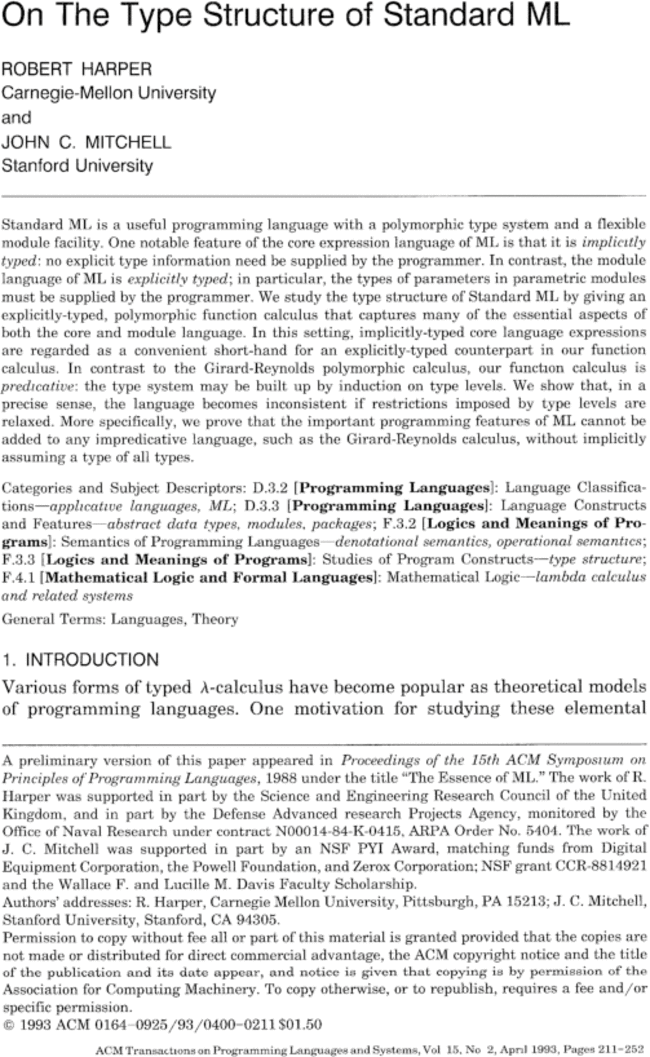Cited By
View all- Alves SRamos M(2021)An ML-style Record Calculus with Extensible RecordsElectronic Proceedings in Theoretical Computer Science10.4204/EPTCS.351.1351(1-17)Online publication date: 29-Dec-2021
- Patrignani MMartin EDevriese D(2021)On the semantic expressiveness of recursive typesProceedings of the ACM on Programming Languages10.1145/34343025:POPL(1-29)Online publication date: 4-Jan-2021
- Sánchez-Banderas RRodríguez ABarreiro HOtaduy M(2020)Robust eulerian-on-lagrangian rodsACM Transactions on Graphics10.1145/3386569.339248939:4(59:1-59:10)Online publication date: 12-Aug-2020
- Show More Cited By






